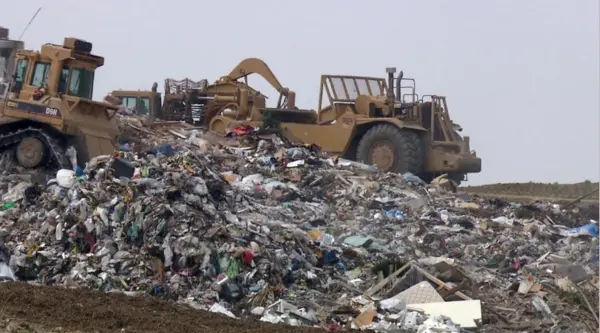Improper waste management can affect your environment more than you think. But you might wonder, what exactly can it cause? The effects of a city landfills change how several systems work, from local ecosystems to global climate. So, it’s also best to understand how to avoid them.
We’ve put together the common impacts and solutions to get you started!
Environmental Impacts of City Landfill Waste
City landfills can cause several changes to your surroundings. The following are some of the most prominent effects and major effects:
Greenhouse Gas Emissions
Landfills contribute to the production of greenhouse gases, specifically methane. It traps more heat than carbon dioxide and releases it when organic waste decomposes in landfills.
As a result, it adds to the problem of climate change and global warming.
Soil and Water Contamination
Trash landfills usually contain harmful materials in the mix. It includes toxic chemicals, heavy metals, and other hazardous waste.
Although compiled, they can seep into the soil and waterways. So, it poses a threat to wildlife and humans alike.
Air Pollution
Landfills release harmful gases and particles into the air without proper waste management. These emissions also make living beings prone to sickness.
For humans, it usually results in serious respiratory issues that affect the heart and other vital body parts.
Habitat Destruction
A city landfills requires lots of physical space to cater to more waste. But, establishing and expanding them requires people to destroy local habitats.
It throws off the natural balance and interdependencies between species, messing up biodiversity in several ways.
Ways to Reduce City Landfill Impacts
Though these impacts are sobering, there are several steps you can take to reduce landfill use. The following methods can significantly mitigate the effects:
Recycling and Composting
Recycling and composting are top ways to divert waste from landfills and turn them into valuable resources. This way, you can give discarded items a new purpose.
You can also consider other methods, like donating to dedicated organizations and conserving natural resources.
Responsible Consumption
City landfill waste can decrease if more people learn how to consume responsibly. It means reducing your consumption or making careful consideration when buying products.
A few things you can consider include choosing products with minimal packaging or that use sustainable materials. You can also build the habit of only buying what you need in the necessary amounts.
Dumpster Rentals for Large Waste
It’s good to make use of public dumpsters in the right way. You can also make them available if there aren’t any near you.
Doing so encourages proper dumpster management and ensures the waste gets appropriately processed.
Dumpster rentals are also an excellent solution if you prefer something more convenient. You can visit wrsdumpsterrental.com for more details.
Donate or Sell Unwanted Items
Waste management is also about knowing when to get rid of items. Instead of throwing away things you don’t want, consider donating or selling them.
It fosters sustainability within your community and promotes resourcefulness.
Waste Management Education
Proper waste management education is crucial to spread awareness about the ongoing issue. It’s also a great way to learn about sustainable practices.
The more you understand the impacts of waste, the more conscious you can be of how you handle them. And so, it allows room for improvement.
Protect Your Surroundings by Understanding City Landfill and Prevention Methods
Knowing the impacts of a city landfill helps you understand how to change it. You can make room for a healthier and safer environment with the right practices.
Check out our blog for more.
